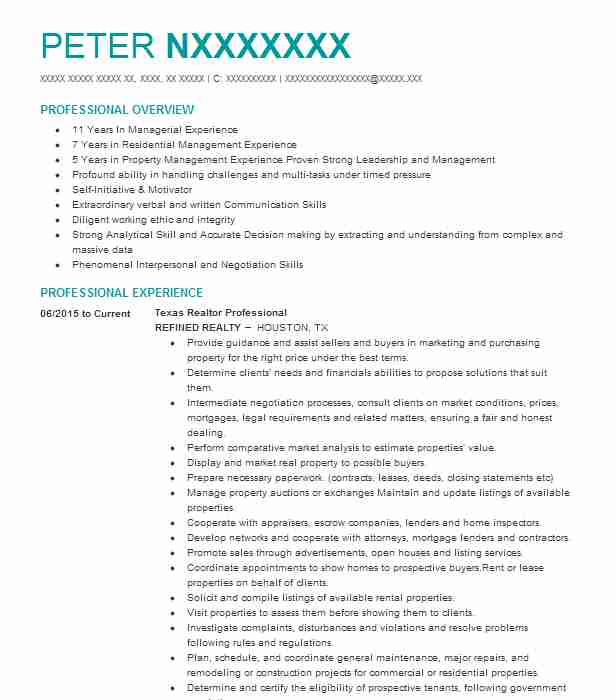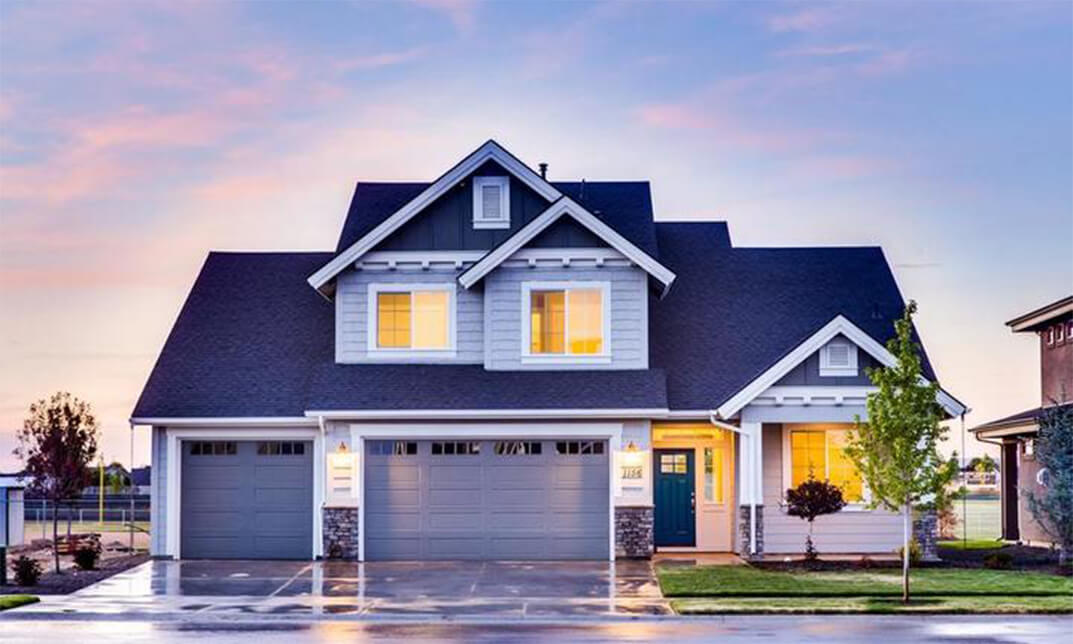
To become a Wisconsin realty agent, you will need to apply for a license. Before you can be granted your license, there are a few things you need to do.
In order to start, you need to meet some educational requirements. Most cases will require you to complete a prelicense course. This can usually be done online or in a classroom. To help you prepare for the real-estate licensing exam, many schools offer exam prep classes.
After completing the pre-licensing course, you will also have to pass the state's licensing examination. The exam takes about four hours and is divided into two parts - the state and national. Each section has approximately 145-150 multiple choice questions.
You will have to wait two months after passing the Wisconsin prelicense exam before you can apply for your real-estate license. You will need to fill in a form, and pay an initial credential cost. In most cases, you will be required to produce proof of education. You can find a variety of approved programs to assist you in this process.

A school that offers online and in-person classes can be helpful to some. You can choose the time and place that works best for you. A broker is another option. A broker can help you navigate the process, give you training and offer an insider's view of the industry.
A real estate broker can specialize in one type of property. You might specialize in industrial or commercial property. If you are deciding between these two options, it is a good idea that you look at the culture of your firm. Similarly, you might want to consider the commission split and reputation of the agency in the community.
You'll need to submit several forms to the Wisconsin Department of Safety and Professional Services before you can begin the application process. An background check is also required. You'll also need to report any previous misdemeanors. However, any criminal history you may have won't automatically prevent you from getting your driver's license.
An exemption can also be granted if you are a licensed professional in another state. If you're licensed in a different state, you will need to get approval from the DSPS to take the Wisconsin real estate license exam.
A 72-hour course is required to obtain your Wisconsin real estate license. This course can be taken online or in-person at many Wisconsin realty schools. After you complete the course, Pearson VUE will allow you to take the state licensing examination at an approved testing center.

Once you've successfully completed your Wisconsin pre-license course, you'll receive a certificate that you can use to register for the state's exams. Once you've passed, you'll need to submit an Application and Affidavit for Professional/Occupational License (#1051).
Most people will have to pass background checks before they can apply for their real estate license. To apply for a real estate license, you will need to be at least 18 years old. Additionally, you must have a high school diploma or GED.
FAQ
Can I afford a downpayment to buy a house?
Yes! There are many programs that can help people who don’t have a lot of money to purchase a property. These programs include government-backed mortgages (FHA), VA loans and USDA loans. You can find more information on our website.
What should I do if I want to use a mortgage broker
A mortgage broker may be able to help you get a lower rate. Brokers work with multiple lenders and negotiate deals on your behalf. However, some brokers take a commission from the lenders. Before you sign up for a broker, make sure to check all fees.
How do you calculate your interest rate?
Market conditions affect the rate of interest. The average interest rate over the past week was 4.39%. Divide the length of your loan by the interest rates to calculate your interest rate. For example: If you finance $200,000 over 20 year at 5% per annum, your interest rates are 0.05 x 20% 1% which equals ten base points.
How can you tell if your house is worth selling?
If you have an asking price that's too low, it could be because your home isn't priced correctly. If you have an asking price well below market value, then there may not be enough interest in your home. For more information on current market conditions, download our Home Value Report.
How do I eliminate termites and other pests?
Termites and other pests will eat away at your home over time. They can cause damage to wooden structures such as furniture and decks. A professional pest control company should be hired to inspect your house regularly to prevent this.
How much does it cost for windows to be replaced?
The cost of replacing windows is between $1,500 and $3,000 per window. The total cost of replacing all of your windows will depend on the exact size, style, and brand of windows you choose.
Statistics
- Based on your credit scores and other financial details, your lender offers you a 3.5% interest rate on loan. (investopedia.com)
- This seems to be a more popular trend as the U.S. Census Bureau reports the homeownership rate was around 65% last year. (fortunebuilders.com)
- The FHA sets its desirable debt-to-income ratio at 43%. (fortunebuilders.com)
- Private mortgage insurance may be required for conventional loans when the borrower puts less than 20% down.4 FHA loans are mortgage loans issued by private lenders and backed by the federal government. (investopedia.com)
- 10 years ago, homeownership was nearly 70%. (fortunebuilders.com)
External Links
How To
How to manage a rental property
Although renting your home is a great way of making extra money, there are many things you should consider before you make a decision. These tips will help you manage your rental property and show you the things to consider before renting your home.
Here are the basics to help you start thinking about renting out a home.
-
What do I need to consider first? You need to assess your finances before renting out your home. If you have outstanding debts like credit card bills or mortgage payment, you may find it difficult to pay someone else to stay in your home while that you're gone. It is also important to review your budget. If you don't have enough money for your monthly expenses (rental, utilities, and insurance), it may be worth looking into your options. It may not be worth it.
-
How much will it cost to rent my house? Many factors go into calculating the amount you could charge for letting your home. These include things like location, size, features, condition, and even the season. Prices vary depending on where you live so it's important that you don't expect the same rates everywhere. Rightmove has found that the average rent price for a London one-bedroom apartment is PS1,400 per mo. This would translate into a total of PS2,800 per calendar year if you rented your entire home. That's not bad, but if you only wanted to let part of your home, you could probably earn significantly less.
-
Is it worth the risk? Doing something new always comes with risks, but if it brings in extra income, why wouldn't you try it? It is important to understand your rights and responsibilities before signing anything. Not only will you be spending more time away than your family, but you will also have to maintain the property, pay for repairs and keep it clean. Before signing up, be sure to carefully consider these factors.
-
What are the benefits? So now that you know how much it costs to rent out your home and you're confident that it's worth it, you'll need to think about the advantages. You have many options to rent your house: you can pay off debt, invest in vacations, save for rainy days, or simply relax from the hustle and bustle of your daily life. Whatever you choose, it's likely to be better than working every day. You could make renting a part-time job if you plan ahead.
-
How do I find tenants? Once you've made the decision that you want your property to be rented out, you must advertise it correctly. You can start by listing your property online on websites such as Rightmove and Zoopla. Once you receive contact from potential tenants, it's time to set up an interview. This will allow you to assess their suitability, and make sure they are financially sound enough to move into your house.
-
How do I ensure I am covered? If you don't want to leave your home empty, make sure that you have insurance against fire, theft and damage. You will need insurance for your home. This can be done through your landlord directly or with an agent. Your landlord will likely require you to add them on as additional insured. This is to ensure that your property is covered for any damages you cause. If your landlord is not registered with UK insurers, or you are living abroad, this policy doesn't apply. In such cases you will need a registration with an international insurance.
-
It's easy to feel that you don't have the time or money to look for tenants. This is especially true if you work from home. You must put your best foot forward when advertising property. It is important to create a professional website and place ads online. It is also necessary to create a complete application form and give references. While some people prefer to handle everything themselves, others hire agents who can take care of most of the legwork. Either way, you'll need to be prepared to answer questions during interviews.
-
What happens once I find my tenant If you have a current lease in place you'll need inform your tenant about changes, such moving dates. You can negotiate details such as the deposit and length of stay. Keep in mind that you will still be responsible for paying utilities and other costs once your tenancy ends.
-
How do I collect my rent? When the time comes to collect the rent, you'll need to check whether your tenant has paid up. If they haven't, remind them. Any outstanding rents can be deducted from future rents, before you send them a final bill. If you're having difficulty getting hold of your tenant you can always call police. They won't normally evict someone unless there's been a breach of contract, but they can issue a warrant if necessary.
-
How can I avoid potential problems? It can be very lucrative to rent out your home, but it is important to protect yourself. Make sure you have carbon monoxide detectors installed and security cameras installed. It is important to check that your neighbors allow you leave your property unlocked at nights and that you have sufficient insurance. Finally, you should never let strangers into your house, even if they say they're moving in next door.